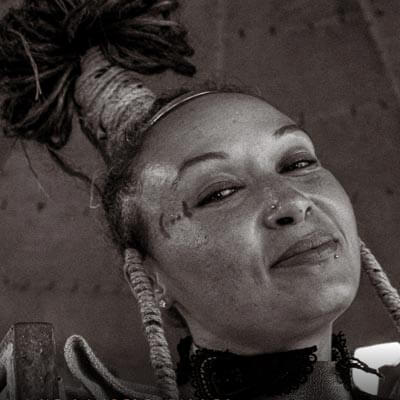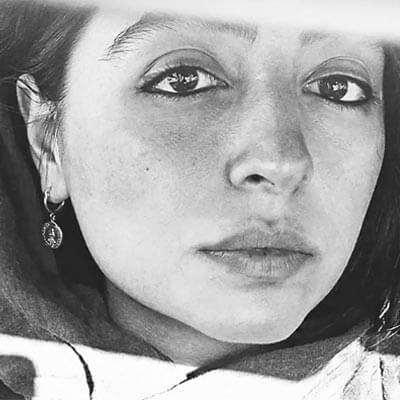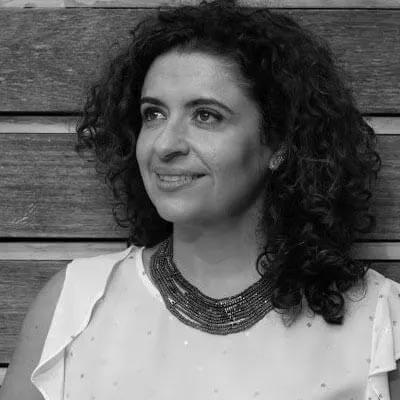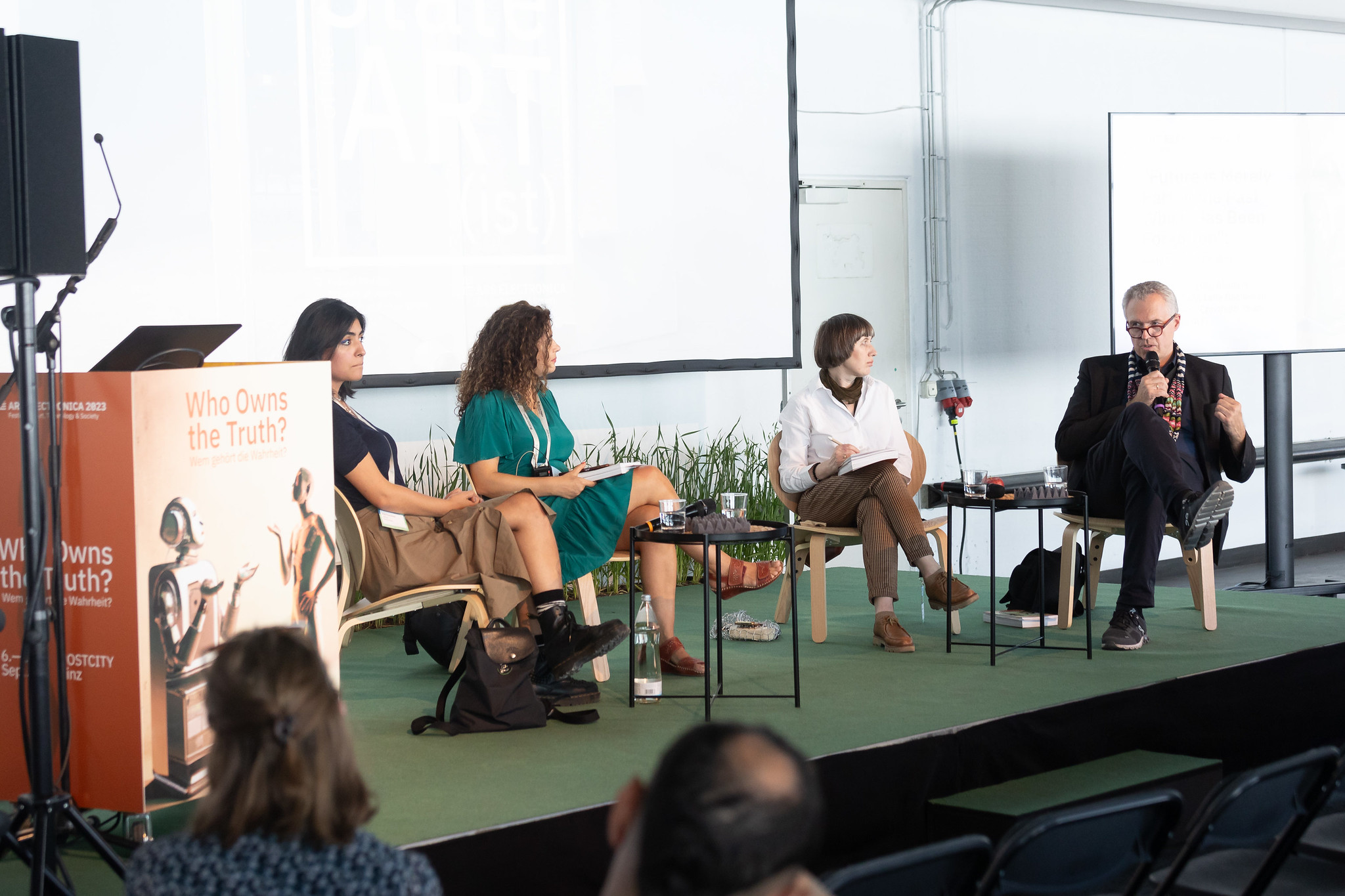Panel discussion
From repositioning everyday acts of survival as radical practices of resistance to reckoning with the longevity of colonial violence, artists’ creative resistance to oppression grants necessary visibility to global issues, even as the possibility of their work is thrown into uncertainty by repressive regimes. This conversation will shed light on threats against creative freedom around the world, as well as the ways in which artists persevere, amplifying voices and experiences that might otherwise go unheard and unseen.
Note: title inspired by quote from Mahsa Alpeh’s work JOWHAR
Chair
Leila Nachawati Rego (ES/SY)
Panelists
Indigene Harris (ZA), Mahsa Aleph (IR), Christoph Thun Hohenstein (AT)

Indigene Harris (ZA)
Indigene is the founding Director of |Kx’am, a non-profit company aimed at promoting primarily |Xam knowledge systems with the use of new media. They are an internationally published performance poet, healer, priestess and custodian of indigenous consciousness.

Mahsa Aleph (IR)
Mahsa Aleph is an installation artist who studied fine art at Tehran University of Art. Aleph’s projects deal with classical Persian literature. She “reinterprets” the content of this discourse in physical forms—as if she is reifying the abstract essence of words into something concrete and tangible. Her work’s central theme is concerned with existential questions regarding human identity and its essence—the relationship between a being and its environment. The “historical memory” of materials and objects is a central motif in her installations.

Leila Nachawati Rego (ES/SY)
Leila Nachawati Rego is a Spanish-Syrian writer and human rights defender. She works as media outreach lead at the Association for Progressive Communications and is a professor at Madrid’s Carlos III University, where she earned her PhD in citizen communications in war and conflict. She is the co-founder of the news portal on Syrian civil society SyriaUntold and author of the novel Cuando la revolución termine, which focuses on the beginning of the Arab Spring in Syria.
